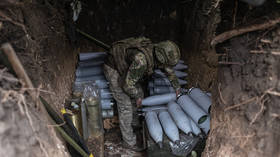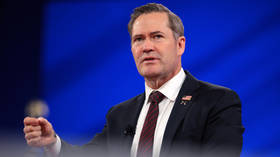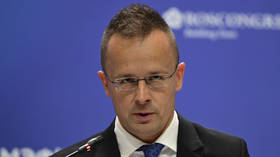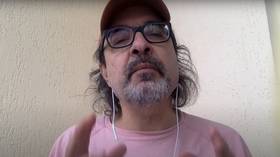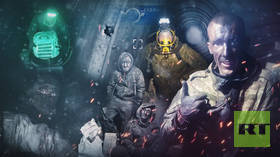UK spy agencies are looking for the next Alan Turing and ‘Q’ in recruitment drives with a focus on tackling cyber threats
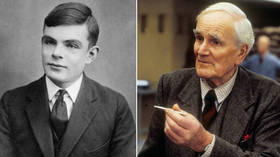
Two UK intelligence agencies are actively recruiting “neurodiverse” individuals and tech wizards – in the moulds of iconic code-breaker Alan Turing and James Bond’s ‘Q’, respectively – to tackle emerging cyber-security challenges.
The Secret Intelligence Service, better known as MI6, has put out a job advert for a “Director General Q” to lead a team of boffins that turn “disruptive technologies from threats to our operations into opportunities” to help with its mission against the country’s “hardest adversaries.”
The successful candidate, who will not be “publicly avowed,” will answer to MI6 chief Richard Moore – who apparently goes by the letter ‘C’ and not ‘M’. Over the past week, Moore took to radio and social media to pitch the vacancy, which is less about exploding pens than might be expected.
As I said in my weekend interview, we’re looking for a new ‘Q’. If you want to serve your country by helping MI6 to develop the operational technology of the future, please take a look - https://t.co/y7ifHaEeDP
— Richard Moore (@ChiefMI6) April 29, 2021
Instead, the ideal candidate to take the agency to the “leading edge of digital innovation” appears to be a tech industry executive.
According to the ad, the role is meant for a “senior entrepreneurial leader, with experience leading a cutting-edge digital, technology, or engineering business, and a track record of delivering digital transformation and cultural change.”
“In this one, life imitates art,” Moore said in an interview with Times Radio. “We were reshaping it a few years ago and we couldn’t think of the right name for it and in the end, we thought, ‘Well, come on, let’s go for it,’ and so we decided to call it Q.”
Meanwhile, the Government Communications Headquarters (GCHQ) is looking for individuals who “think differently” as part of a “mission critical” apprenticeship drive in which successful candidates are “three to four times more likely” to be dyslexic than those on similar schemes elsewhere.
During a video podcast broadcast on Thursday, a senior GCHQ director, Jo Cavan, said the apprenticeship programme draws particular interest from people with dyslexia, many of whom “don’t feel they can thrive in a traditional education environment.”
“We’re looking for people who can see something that’s out of place in a bigger picture, who have good visual awareness and can spot anomalies,” Cavan said, adding that the agency has valued hiring “neurodiverse” individuals like Turing, a dyslexic, during its 100-year existence.
Also on rt.com Why privacy-busting, law-breaking GCHQ’s pledges to protect the public using artificial intelligence should raise an eyebrowNoting that GCHQ has a “thriving community of colleagues who think differently,” she said that the “less people think in a similar way, the better they are” in the types of roles the agency expects to fill.
A lot of the work protecting the UK against a range of threats involves “tackling challenging problems” and “solving complex issues” – which requires people who “connect ideas… think visually” and “use their intuition,” Cavan said.
“If they’re sifting through large amounts of data from a large number of sources to prevent a terrorist attack or a serious organised crime, skills such as pattern recognition are key. A lot of dyslexic colleagues have those strengths,” she added.
The podcast also featured two GCHQ operatives, identified only by the pseudonyms ‘Charlotte’ and ‘Rob’ – who spoke about how being dyslexic allowed them to “spot hidden patterns” and “do things differently.”
Last month, the UK’s integrated defence review spoke about a strategic pivot away from the traditional focus on military capabilities and towards strengthening science and technology capacities.
If you like this story, share it with a friend!



